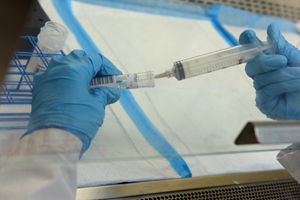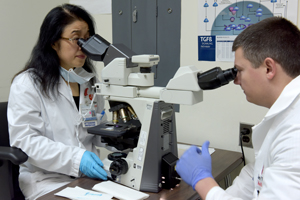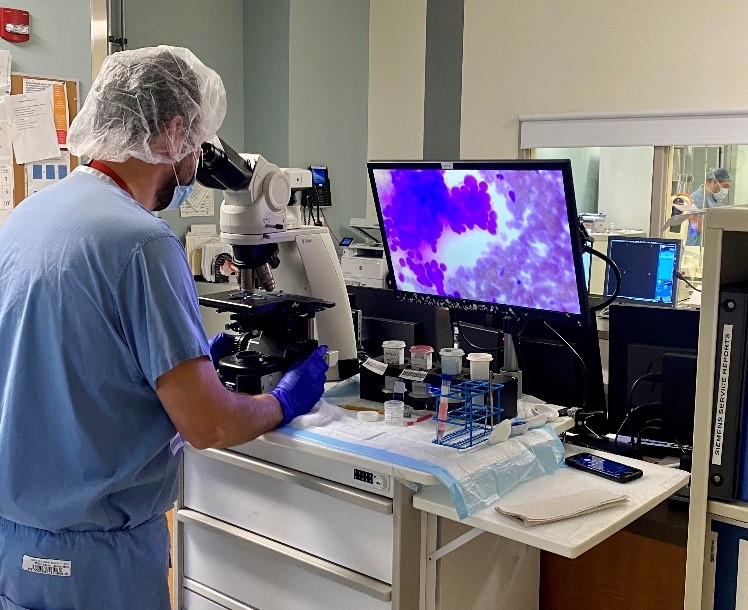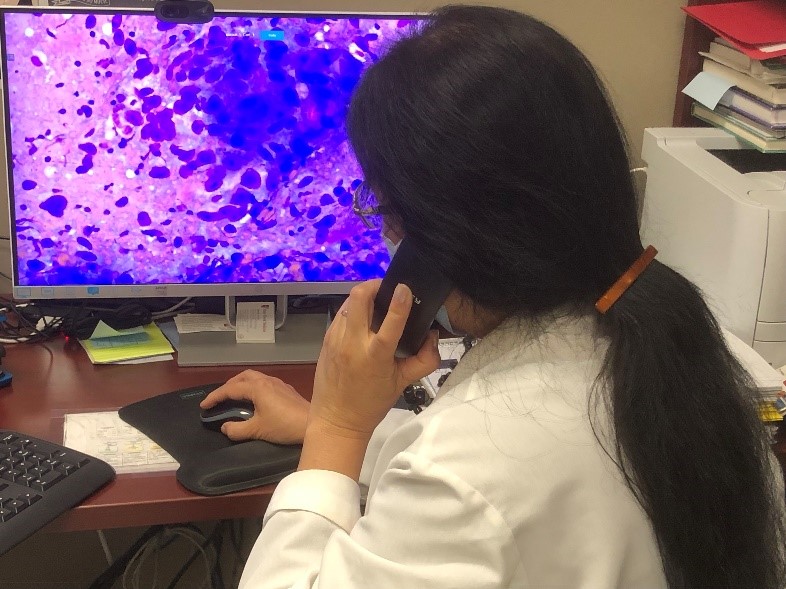FINE NEEDLE ASPIRATION (FNA) AND CORE BIOPSY CYTOPATHOLOGY SERVICE
This team performs and interprets FNA and core biopsy of superficial masses (palpable or non-palpable) in the thyroid, salivary gland, breast, lymph nodes and any soft tissue. Tumor marker analysis is available as well. Referred patients are usually accommodated within one week, and in routine cases, diagnoses are ready within 24 hours. Preliminary results are available within two hours for urgent cases.
The Chief of Cytopathogy, Maoxin Wu, MD, PhD, who is certified to perform US-guided FNA and core biopsy, will personally perform all procedures under ultrasound guidance and provide patients and referring physicians with immediate interpretation. So that we can optimize the coordination of your care, please ask your primary care physician or specialist's office to contact us directly. Referring physicians may contact 631-444-3000 for an appointment.
If physicians choose to perform their own procedures, slides, fixatives, mailers and forms will be supplied by the Stony Brook Cytology Laboratory. To assist physicians in achieving optimal results, laboratory staff members are available to provide technical consultation. Telecytology is utilized for many of the endoscopy, bronchoscopy and CT-guided FNAs. The laboratory also provides routine gynecologic and non-gynecologic cytology screening.
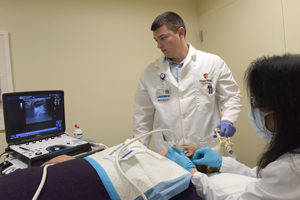
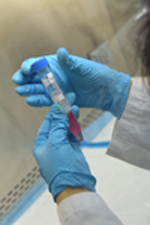
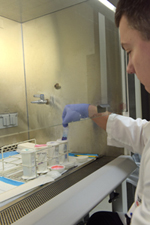
Presentation: How to handle thyroid FNA
GYNECOLOGIC AND NON-GYNECOLOGIC CYTOPATHOLOGY
The cytopathology laboratory is headed by a board-certified cytopathologist. Members of the diagnostic team are internationally recognized for leadership in the development and application of molecular cytologic assays to detect HPV-mediated premalignant and malignant lesions of the cervix. Gynecologic and non-gynecologic specimens are processed and reported.
